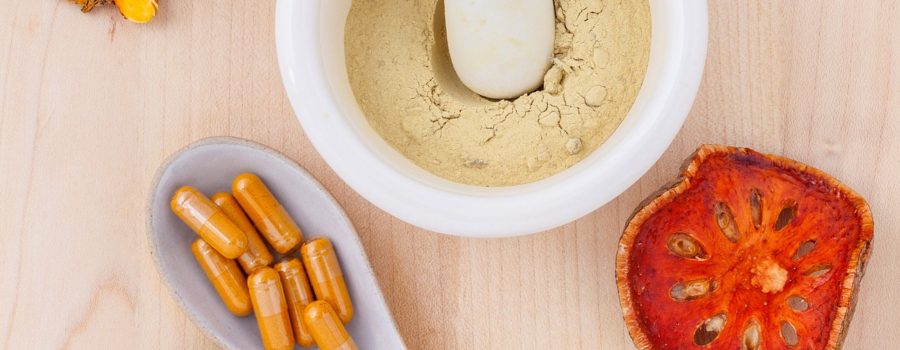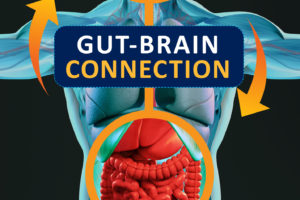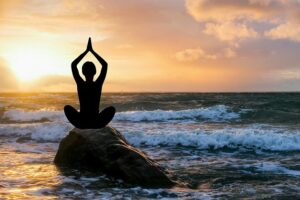When it comes to reducing stress and improving health, supplements should not be the first line of action. Nutrition, exercise, sleep, sunlight, nature exposure, social support, and meditation should be the main things people should incorporate if they want to reduce stress and improve their health. However, supplements definitely have their place, especially in today’s modern, hectic, and unnatural lifestyle. So, unless you’re a modern hunter-gatherer, you are likely experiencing a number of factors that can cause abnormally high stress levels. Thus, this is why supplements can be so beneficial. Supplements are never necessary in an ideal environment, but in today’s modern world, they are almost essential for achieving optimal health.
Now, as I’m sure you know, there are many supplements out there, yet a lot of these are ineffective. However, the following supplements are backed by research and proven to reduce stress and improve health. Keep in mind that this is not an exhaustive list, but the following supplements are a great place to start.
(Note: The following information is for general health advice only. Every individual is different, and you should always consult with your doctor before taking any supplement.)
1. Ashwagandha
The first supplement, and perhaps the best, is ashwagandha. Ashwagandha is a very powerful herb and is considered one of the most important herbs in Ayurveda (a holistic medicinal system developed in India). Ashwagandha’s popularity has now spread around the world, as people are starting to understand the many benefits. Indeed, one study found that ashwagandha supplementation reduces stress, anxiety, insomnia, depression, and cortisol (Chandrasekhar, Kapoor, & Anishetty, 2012). To highlight just how powerful ashwagandha worked, it was found that 60 days of ashwagandha supplementation led to a 75 % reduction in anxiety, 69 % reduction in insomnia, 77 % reduction in depression, and 27 % reduction in cortisol levels (Chandrasekhar, et al., 2012).
Needless to say, ashwagandha is a very potent stress-reducing supplement, and I would consider it the number one choice. Ashwagandha has additional benefits, such as improving sexual health (Dongre, Langade, & Bhattacharyya, 2015) (Ambiye, et al., 2013) improving memory ability, and combating general weakness and exhaustion (Khalsa, 2017). If you could only use one supplement, I would highly recommend ashwagandha.
2. Rhodiola
Rhodiola is another example of an herbal supplement, and it has been used for centuries in Siberia. This herb has also been used in traditional folk medicine in China, Serbia, Scandinavia, and Ukraine. Just like ashwagandha, Rhodiola has made its way to the western world and other areas because it has been proven to be very effective. First of all, studies have shown that rhodiola can reduce general fatigue and improve cognitive functioning under stressful conditions (Darbinyan, et al., 2000). An additional study found that rhodiola can improve depression, insomnia, and emotional stability in individuals with mild to moderate depression (Darbinyan, et al., 2009).
Other benefits include boosted immunity, increased energy, improved athletic performance and exercise capacity, improve sexual health, and memory enhancement (Khalsa, 2017). Rhodiola is very similar to ashwagandha, in terms of its ability to produce all-around benefits. Thus, you may not even need other supplements if you take this one.
3. L-Theanine
Next up is L-theanine. L-theanine is an amino acid found naturally in green tea leaves. However, the most potent benefits of L-theanine come from supplements because they can contain much higher levels of L-theanine than what is found in green tea. L-theanine can boost GABA levels in the brain, in addition to serotonin and dopamine, all of which promote relaxation and calmness (Breus, 2017). Furthermore, L-theanine can reduce stress-linked brain chemicals, and it also increases alpha brain waves, which are associated with an alert, yet relaxed feeling (Breus, 2017).
Given the way L-theanine works on the brain, it is no surprise that there are research-backed benefits of supplementing with it. For example, studies have shown that L-theanine supplementation can reduce stress during highly stressful situations (Unno, et al., 2013). In addition, another study found that L-theanine supplementation can lessen sympathetic nervous system activation during stressful tasks, which results in decreased psychological and physiological stress (Kimura, Ozeki, Juneja, & Ohira, 2007). Other benefits of L-theanine include improving sleep, reducing anxiety, and even improving attention, focus, memory, and learning (Breus, 2017). Overall, L-theanine is another highly recommended and effective supplement.
4. Lemon Balm
Yet another herbal supplement, lemon balm has been used for over 2,000 years and was first used in Europe. Lemon balm has a number of benefits and is now used widely in many areas of the world. Studies have proven that lemon balm can reduce stress and increase feelings of calmness (Kennedy, Little, & Scholey, 2004). Another study found that lemon balm significantly improves mood and increases attention (Kennedy, Scholey, Tildesney, Perry, & Wesnes, 2002).
However, lemon balm may also act as a mild sedative, and too high of a dose may reduce alertness and memory abilities (Kennedy, et al., 2004). Therefore, one should consider their reasons for taking lemon balm, and also ensure that they take the recommended dose. Given that it may act as a mild sedative, it is unsurprising that lemon balm has also been shown to reduce anxiety, insomnia, and sleep disturbances (Daniells, 2008). Therefore, lemon balm can be a particularly beneficial supplement to take around bedtime.
5. Valerian
The last supplement for stress reduction and improved well-being is valerian. Valerian has been around for many years and has been used as a medicinal herb since the time of ancient Greece and Rome, if not even earlier. In terms of its benefits, one study found that valerian can reduce physiological reactivity during stressful situations (Cropley, Cave, Ellis, and Middleton, 2002). Additional studies have found that valerian can reduce anxiety (Kennedy, Little, Haskell, & Scholey, 2006), and can reduce some of the negative symptoms associated with generalized anxiety disorder (Andreatini, Sartori, Seabra, & Leite, 2002).
Finally, valerian may improve sleep quality and may be an effective way to help with insomnia (Bent, Padula, Moore, Patterson, & Mehling, 2006). So, just like lemon balm, valerian appears to be a particularly good supplement to take at night. It may also be a mild sedative, so one should be cautious when taking it during the day.
A Great Additional Tool
There are many other supplements out there that can be beneficial too. However, this list was just to give you an idea of some of the ways you can reduce stress through supplementation. In addition, I wanted to highlight some of the best supplements that yield multiple benefits. In particular, ashwagandha and rhodiola are the best all-around supplements, and they offer a number of distinct health benefits. L-theanine is probably the next best because it also offers multiple benefits. Lemon balm and valerian are also very beneficial, yet the benefits are more narrowed. Regardless, all of these supplements can be a great additional tool to add to your life in order to reduce stress and improve your health.
Achieving Optimal Health and Wellness
Supplements should never be the main focus for improving health, but they can be very valuable, especially in today’s high-stress society. So, whether you have anxiety, insomnia, high stress, depression, or simply feel worn out and fatigued, I highly recommend you try some of these effective and research-backed supplements. There will never be a magic pill for any disease, disorder, or ailment. Yet, supplements, when combined with a healthy lifestyle, can help you get closer to achieving the optimal levels of health and wellness you desire.
References
Chandrasekhar, K., Kapoor, J., & Anishetty, S. (2012). A prospective, randomized double-blind, placebo-controlled study of safety and efficacy of a high-concentration full-spectrum extract of ashwagandha root in reducing stress and anxiety in adults. Indian Journal of Psychological Medicine, 34(3), 255-262. doi: 10.4103/0253-7176.106022
Dongre, S., Langade, D., & Bhattacharyya, S. (2015). Efficacy and safety of ashwagandha (Withania somnifera) root extract in improving sexual function in women: A pilot study. BioMed Research International, 2015, 1-9. http://dx.doi.org/10.1155/2015/284154
Ambiye, V. R., Langade, D., Dongre, S., Aptikar, P., Kulkarni, M., & Dongre, A. (2013). Clinical evaluation of the spermatogenic activity of the root extract of ashwagandha (Withania somnifera) in oligospermic males: A pilot study. Evidence Based Complementary and Alternative Medicine, 2013, 1-7. http://dx.doi.org/10.1155/2013/571420
Unno, K., Tanida, N., Yamamoto, H., Iguchi, K., Hoshino, M., Takeda, A., …Yamada, H. (2013). Anti-stress effect of theanine on students during pharmacy practice: Positive correlation among salivary α-amylase activity, trait anxiety and subjective stress. Pharmacology Biochemistry and Behavior, 111, 128-135. https://doi.org/10.1016/j.pbb.2013.09.004
Kimura, K., Ozeki, M., Junega, L. R., & Ohira, H. (2007). L-theanine reduces psychological and physiological stress responses. Biological Psychology, 74(1), 39-45. https://doi.org/10.1016/j.biopsycho.2006.06.006
Darbinyan, V., Aslanyan, G., Amroyan, E., Gabrielyan, E., Malmstrom, C., & Panossian, A. (2007) Clinical trial of Rhodiola rosea L. extract SHR-5 in the treatment of mild to moderate depression. Nordic Journal of Psychiatry, 61(5), 343-348, DOI: 10.1080/08039480701643290
Darbinyan, V., Kteyan, A., Panossian, A., Gabrielian, E., Wikman, G., & Wagner, H. (2000). Rhodiola rosea in stress induced fatigue- A double blind cross-over study of a standardized extract SHR-5 with a repeated low-dose regimen on the mental performance of healthy physicians during night duty. Phtyomedicine, 7(5), 365-371. https://doi.org/10.1016/S0944-7113(00)80055-0
Khalsa, K. P. S. (2017). Adaptogenic herbs: Stress busters for the modern age. Better Nutrition, 30-36. Retrieved from https://www.scribd.com/article/365989317/Adaptogenic-Herbs-Stress-Busters-For-The-Modern-Age
Breus, M. J. (2017). What you need to know about l-theanine. Psychology Today. https://www.psychologytoday.com/us/blog/sleep-newzzz/201708/what-you-need-know-about-l-theanine
Kennedy, D. O., Little, W., & Scholey, A. B. (2004). Attenuation of laboratory-induced stress in humans after acute administration of Melissa officinalis (lemon balm). Psychosomatic Medicine, 66(4), 607-613. doi: 10.1097/01.psy.0000132877.72833.71
Kennedy, D. O., Scholey, A. B., Tildesley, N. T. J., Perry, E. K., & Wesnes, K. A. (2002). Modulation of mood and cognitive performance following acute administration of Melissa officinalis (lemon balm). Pharmacology Biochemistry and Behavior, 72(4), 953-964. https://doi.org/10.1016/S0091-3057(02)00777-3
Daniells, S. (2008). Berkem builds science to support anti-stress ingredient. https://www.nutraingredients.com/Article/2007/03/22/Berkem-builds-science-to-support-anti-stress-ingredient?id=75166-berkem-lemon-balm-extract-stress-anxiety
Cropley, M., Cave, Z., Ellis, J., & Middleton, R. W. (2002). Effect of kava and valerian on human physiological and psychological responses to mental stress assessed under laboratory conditions. Phytotherapy Research, 16(1), 7-23. doi:10.1002/ptr.1002
Kennedy, D. O., Little, W., Haskell, C. F., & Scholey, A. B. (2006), Anxiolytic effects of a combination of Melissa ofcinalis and Valeriana ofcinalis during laboratory induced stress. Phytotherapy Research, 20(2), 96-102. doi:10.1002/ptr.1787
Andreatini, R., Sartori, V. A., Seabra, M. L., & Leite, J. R. (2002), Effect of valepotriates (valerian extract) in generalized anxiety disorder: a randomized placebo‐controlled pilot study. Phytotherapy Research, 16, 650-654. doi:10.1002/ptr.1027
Bent, S., Padula, A., Moore, D., Patterson, M., & Mehling, W. (2006). Valerian for sleep: A systematic review and meta-analysis. The American Journal of Medicine, 119(12), 1005-1012. https://doi.org/10.1016/j.amjmed.2006.02.026



